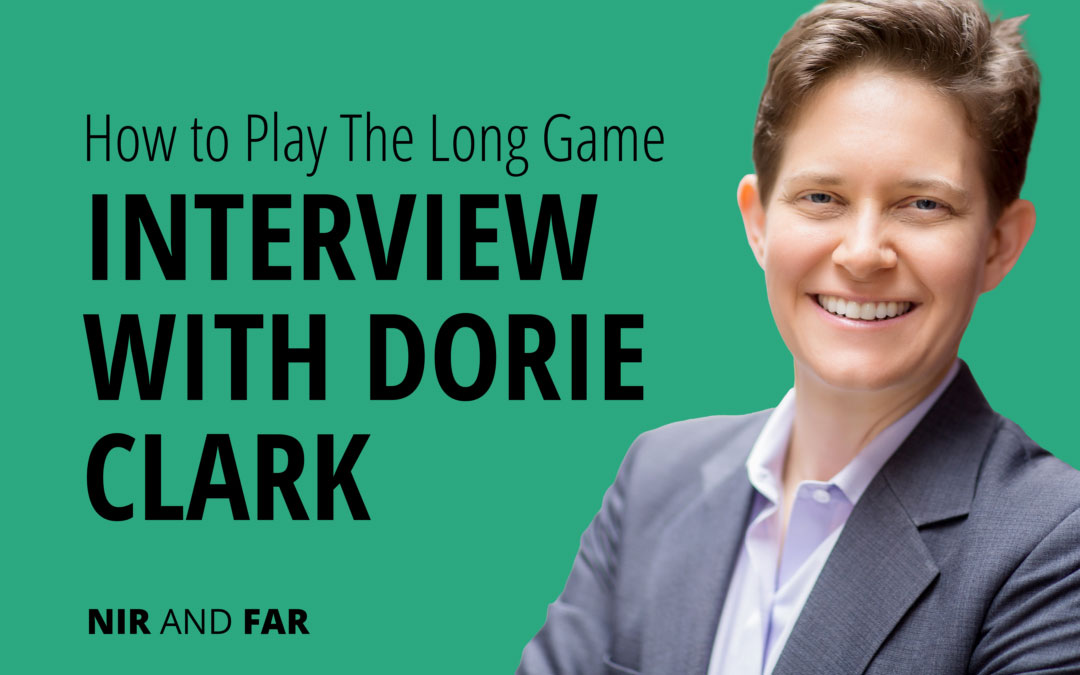Nir’s Note: Entrepreneur, speaker and consultant, Dorie Clark is a recognized leader in the field of executive education, a topic she teaches at Duke University Fuqua School of Business and Columbia Business School. She has developed over 20 LinkedIn Learning courses on executive education, viewed by hundreds of thousands of subscribers. Dorie is the author of Entrepreneurial You, Reinventing You, and Stand Out, which was named the top leadership book by Inc. magazine and one of the top 10 business books of the year by Forbes. Her latest book, The Long Game, delves into the challenge of strategizing for the long term in a world that prioritizes short-term gains.
Nir Eyal: Why did you write this book?
NE: You’ve done some fascinating research. From what you’ve learned, what surprised you the most?
NE: What lessons should people take away from your book regarding how they should design their own behavior or the behavior of others?
DC: Through the course of writing The Long Game, I’ve really become attuned to the importance of having a trusted group of advisers around you. They should be people that are supportive and want the best for you and should be knowledgeable about your field or industry, so they can give you helpful and relevant advice when you hit snags and need guidance.
The most important lesson is that in moments of duress, you often really can’t trust yourself. It’s very easy to either stay committed for too long to an idea that isn’t working, or, conversely, to give up too soon on something promising because it isn’t unfolding as fast as you’d like, and you fall into despair. But when you have a knowledgeable group of advisers around you, they can provide a dose of the rationality that you need and help you discern whether it’s time to give up or keep pressing forward.
NE: Writing a book is hard. What do you do when you find yourself distracted or going off track?
NE: What’s one thing you believe that most people would disagree with?
DC: Most people become parents–in the U.S., it’s 86% of women and 62% of men–and that is way too many. I was lucky enough to have a caring and devoted mom, but anyone can see the frequent pathology around us inflicted by careless and damaged people. The numbers should be reversed, and only the best–and best-adjusted–should qualify. I’d like parenting to go from being the standard of “everyone does it” to an elite qualification that one (morally, if not legally) has to earn the right to do. (I am not a parent, and I have endless respect for the patient people who do it well.)
NE: What’s your most important good habit or routine?
NE: Are you working to change any bad habits?
NE: What one product or service has helped you build a healthy habit?
NE: What’s the most important takeaway you want people to remember after reading this book?
Related Articles
- Schedule Maker: a Google Sheet to Plan Your Week
- Habit Tracker Template in Google Sheets
- The Ultimate Core Values List: Your Guide to Personal Growth
- Timeboxing: Why It Works and How to Get Started in 2025
- An Illustrated Guide to the 4 Types of Liars
- Hyperbolic Discounting: Why You Make Terrible Life Choices
- Happiness Hack: This One Ritual Made Me Much Happier

